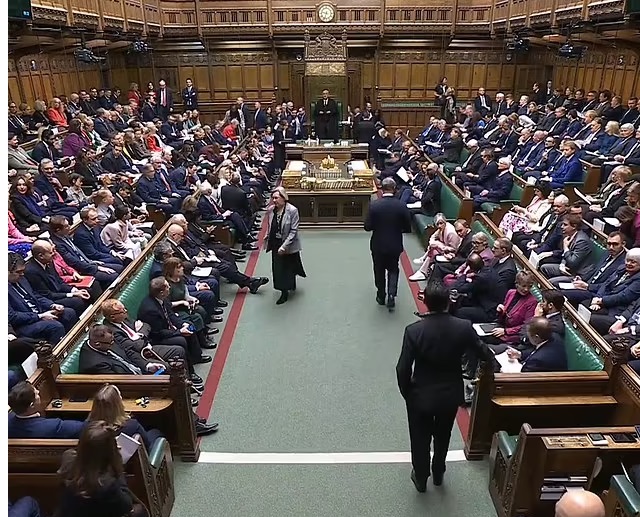Assisted dy!ng set to be legalised in England and Wales after historic vote Assisted dy!ng set to be legalised in England and Wales after historic vote British MPs have taken a historic step towa

British MPs have taken a significant step toward legalizing assisted dying in England and Wales by supporting a bill that would grant certain terminally ill individuals the right to end their lives. The House of Commons approved the second reading of the Terminally Ill Adults (End of Life) Bill by 330 votes to 275, a majority of 55, allowing the legislation to advance through Parliament.
If enacted, the bill would permit mentally competent adults with terminal illnesses and a life expectancy of less than six months to seek assisted death, provided they have the approval of two doctors and a High Court judge. According to Mail Online, this marks the first time MPs have voted on assisted dying since 2015. Members of all parties were allowed a "free vote," and the Government remained neutral on the issue.
The bill will now proceed to the committee stage, where MPs can propose amendments before it undergoes further scrutiny and voting in both the Commons and the House of Lords. Any change in the law is unlikely to be finalized before next year. Labour MP Kim Leadbeater, who introduced the bill, stated that an assisted dying service would likely take another two years to implement if the law is passed.
Protesters both supporting and opposing the bill gathered outside Parliament as MPs cast their votes. During the debate, a senior Labour MP, Dame Meg Hillier, became emotional while sharing her personal opposition to the legislation. She recounted her daughter’s experience with acute pancreatitis, highlighting how effective medical care can alleviate pain. “These first five days, she did not sleep, and she was crying out in pain,” Dame Meg said, her voice breaking. She praised "good medicine" for managing her daughter’s pain and ultimately saving her, despite the prolonged suffering.
Dame Meg warned that legalizing assisted dying represents a profound shift in the relationship between the state, patients, and doctors. She urged MPs to consider the gravity of granting such power to the state and vote against the bill, likening it to "crossing a Rubicon."